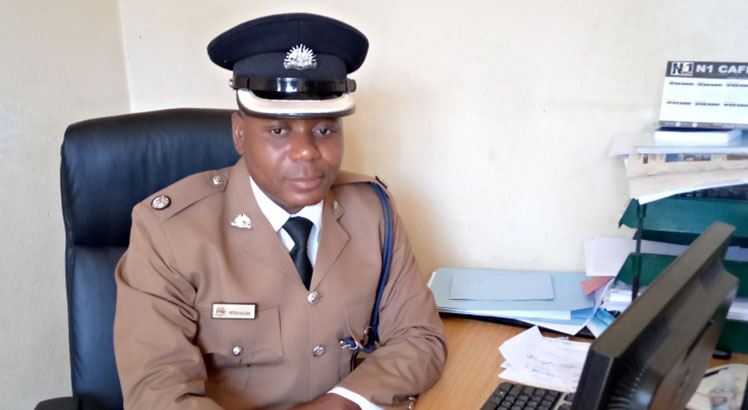Progress stalls on ‘tippex’ cases
Prosecution of presiding officers who allegedly tampered with election results in the 2019 Tripartite Elections is yet to start two years after the officials were arrested and later granted bail.
Police arrested at least 17 presiding officers, who included teachers in February 2021 for allegedly using correction fluid called Tippex to alter results.
The delay of the cases has raised questions on the State’s seriousness to deal with electoral fraud which was heavily condemned by both the High Court of Malawi sitting as the Constitutional Court and the Malawi Supreme Court of Appeal during the presidential election case.
In an interview yesterday, National Police spokesperson Peter Kalaya said they investigated the cases and matters are now in court.
“If you recall, the individuals arrested on accusations of using Tipp-Ex were later released on bail. So, we have done our part, and now everything is in the hands of the courts,” he said.

However, High Court and Malawi Supreme Court of Appeal Registrar Kondwani Banda is yet to respond to our questionnaire on the way forward with the cases.
The 15 presiding officers were charged with the use of Tippex and alterations of official documents contrary to Section 115 (C) as read with Section 118 of the Presidential and Parliamentary Elections Act.
In the Constitutional Court judgement by a five-judge panel, about 600 presiding officers are recorded to have tampered with election results, meaning they are liable for prosecution.
Private practice lawyer Justin Dzonzi is on record as having said the Constitutional Court judgement provided the State with necessary evidence to effect arrests and commence prosecution for those alleged to have tampered with election results.
He argued that going after only presiding officers who used Tippex could be seen to be unfair and selective justice as returning officers and data entry clerks who managed the computers might also have a hand in the alleged fraud.
However, Dzonzi cast doubt on the practicality of prosecuting such a huge number of people and advised the state to focus on those who issued the orders.
He said it was unlikely that the police would go after only some residing officer and officials who played a role in altering or falsifying documents, to set a precedent.
In an earlier interview, Dzonzi said: “If there were 4 000 polling stations and 3 000 had presiding officers who altered figures, plus the computer managers and returning officers, we could be talking of around 10 000 people.
“How do you prosecute all of these? The strategic focus should be on those who issued the order.”
Malawi Electoral Commission spokesperson Sangwani Mwafulirwa said a total of 5 034 presiding officers and 9 612 assistant presiding officers were recruited to manage the 2019 polls.
On whether MEC would engage presiding officers who are alleged to have tempered with election results in 2019, he said that former presiding officers will have an opportunity to compete for the selection of presiding officers for the 2025 elections based on merit.
Said Mwafulirwa: “The engagement of presiding officers will be based on merit. The commission will advertise the vacancy with a detailed qualification framework for all temporary registration and polling staff.
“Those who apply will be shortlisted for interviews, and only those who pass the interviews within the set mark will be engaged.”
He also said the commission has internal processes to monitor the performance of the presiding officers and it is not automatic that all past presiding officers will be engaged for the 2025 elections.
The landmark presidential election case saw the Constitutional Court on February 5 2020 nullifying former president Peter Mutharika’s 2019 victory and ordered a fresh presidential election. The verdict was upheld by a seven-judge panel of the Supreme Court of Appeal in May 2020 and a fresh election followed on June 23 which ushered in President Lazarus Chakwera and the Tonse Alliance.





